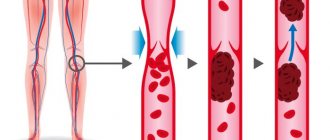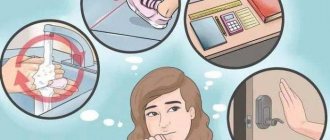Full development of personality requires some kind of external influence. This impact can be people, events and... stress. It is this last factor that interests us.
Stress can be physical and psychological. Physical - arise from a feeling of hunger, heat, thirst, cold, infection, etc. Psychological - are a consequence of severe nervous strain.
The effect of stress on the human body can be both positive and negative. Stress that is not too strong and prolonged leads to positive changes. However, if the impact of stress is intense, sudden, and prolonged, then it is destructive. In an attempt to compensate for growing internal dissatisfaction, a person begins to use psychoactive substances, alcohol, drugs, changes sexual preferences, commits rash acts, and plunges into the world of gambling. This behavior only aggravates internal discomfort and adds problems.
If stress has a negative impact, then a number of indicators may change, including physical and mental health, social circle, success in implementing professional plans, relationships with the opposite sex.
Symptoms of severe stress
All types of such reactions of the body are characterized by some common signs of burnout, which affect not only the physical, but also the psychological sphere of a person. The number of symptoms of severe stress is directly proportional to its severity.
Cognitive signs include problems with memory and concentration, constant worry and anxious thoughts, and fixation only on bad events.
In the emotional sphere, stress manifests itself as moodiness, short temper, irritability, feelings of overwhelm, isolation and loneliness, inability to relax, general sadness and even depression.
Behavioral symptoms of severe stress include overeating or undereating, drowsiness or insomnia, neglect of responsibilities, isolation from other people, nervous habits (snapping fingers, biting nails), and using drugs, cigarettes, and alcohol to relax.
Physical signs include headaches, nausea and dizziness, rapid heartbeat, diarrhea or constipation, loss of sexual desire, and frequent colds.
It is worth noting that symptoms and signs of severe stress can be caused by several other medical and psychological problems. If the listed symptoms are detected, you must contact a psychologist who will give a competent assessment of the situation and determine whether these signs are related to this phenomenon.
Self-medication
https://www.youtube.com/watch?v=8epWRY7O1yk
Anyone who knows from personal experience what stress is understands perfectly well that it is not easy to survive. In this case, sports will help, because physical activity suppresses mental activity. The brain is initially focused on the dominant (problem), then shifts towards physical exercises. Relaxing techniques help relieve stress.
It is necessary to recognize that stress is a disease that needs to be treated. Before turning to doctors for help, try to remove the signs of stress yourself. Various methods are recommended:
- playing sports;
- breathing exercises;
- trips, travel;
- meditation;
- massage.
In many cases, such procedures help relieve symptoms and feel a sense of regularity in life after an emotional upheaval.
If you have not been able to cope with the problem on your own, and the symptoms not only do not go away, but also intensify, this is a serious reason to seek help from a doctor. Many men and women put off visiting the doctor until the last minute, believing that they themselves know perfectly well how to relieve severe stress.
And this must be accepted. It is not necessary to contact a psychotherapist immediately; you can make an appointment with a specialist. The choice of specialist depends on what exactly is bothering you. This could be a cardiologist if your heart hurts, or just a therapist. It is the specialist who will determine the true cause of stress and identify the symptoms of the disease.
What is meant by treating severe stress:
- Appointment with a specialist doctor.
- Consultation with a psychologist, psychotherapist. Attendance at individual or group classes.
- Taking tests.
- Therapeutic procedures (gymnastics, herbal medicine, acupuncture, etc.).
- Taking medications.
- Maintenance therapy (daily routine, diet, lifestyle).
It is important to understand that treating acute stress is a long and hard work. After consulting with specialists, it is important to adhere to their recommendations and take a responsible approach to treatment. Even if it seems that the signs of a stressful condition have disappeared, you should not stop working on yourself, or stop taking the prescribed medications.
Among the medications that doctors prescribe to combat stress, herbal preparations are the most popular. Tension and other signs of an unstable mental state often go away after a course of treatment with tablets or tinctures of mint, motherwort or valerian.
Herbal remedies are popular in combating stress
If the symptoms intensify and the general condition of the body worsens, then after taking herbal preparations, specialists prescribe stronger medications. Signs of acute stress in the most severe cases are relieved with tranquilizers. Taking these drugs reduces feelings of fear, anxiety and relieves emotional stress.
In other cases, antidepressants are prescribed. These are drugs for the treatment of depression. They normalize brain function altered as a result of depression. They can also improve thinking processes, increase inhibited motor activity and have a positive effect on concentration, thus making the existence of men and women easier during a difficult period in their lives.
In any life situation, it is important to always try to control your emotions, make an objective analysis of what is happening, try not to attach importance to minor adversities, and not worry about trifles. Real tragedies happen in life, for which a person never learns to be prepared. You need to listen to yourself, help your emotional world recover from shocks, and do everything necessary to avoid serious consequences for the body. Timely seeking professional help is very important in dealing with severe stress.
Doctors have proven that stress and a woman’s sexuality are incompatible concepts. With severe stress on the body, a woman exhibits many disorders:
- chest pain;
- the vaginal microflora changes;
- sexual desire decreases or completely disappears;
- having difficulty achieving orgasm;
- vaginal dryness;
- the level of sexual excitability decreases.
Don't forget that stress is the body's response to external stimuli. If signs of stress are detected, a woman should overcome the cause of its occurrence as quickly as possible.
When tension levels increase, it is better to seek help from a specialist.
Consequences of severe stress
Under moderate stress, a person's body and mind work most efficiently, which prepares the body for optimal functioning. In this case, the set goals are achieved without depleting vitality.
Unlike moderate stress, severe stress remains a positive factor only for a very short time, after which it leads to disruptions in a person’s normal functioning.
The consequences of severe stress are serious health problems and disruptions in the functioning of almost all body systems: blood pressure rises, the risk of stroke and heart attack increases, the immune system is suppressed, and the aging process accelerates. Another consequence of such overexertion may be infertility. After severe stress, anxiety disorders, depression and neuroses also occur.
Many problems arise or get worse after a stressful situation, for example:
- Heart diseases;
- Obesity;
- Digestive problems;
- Autoimmune diseases;
- Sleep problems;
- Skin diseases (eczema).
You can avoid the negative impact of stress factors by increasing the level of stress resistance, using existing methods, or using medications.
The most important thing is the weather in the house
You can get a “stress hit on the forehead” without leaving your apartment. Your own fortified home is fraught with countless health risks. There are thousands of reasons for permanently ruining the “weather in the house”:
- Busyness, workload, career growth - all this leaves little time for full communication within the family, and cracks form in it.
- Spouses have no time to delve into each other's problems and joys . There is no time to raise a child. On this basis, quarrels, scandals and mutual accusations break out. This does not improve health, but gradually leads to slow physical and mental exhaustion.
- Money constraints, family planning, issues of raising children , mutual grievances and misunderstandings, physical or emotional violence within the family, adultery, divorce - this is the soil on which intra-family stress flourishes.
Ways to increase stress resistance
Help increase stress resistance:
- Social connections. With the support of family members and friends, it is much easier to avoid severe stress, and if it does happen, it is easier to cope with it in the company of close people;
- Feeling of control. A self-confident person is able to influence events and overcome difficulties; he is calmer and more easily accepting of any stressful situation;
- Optimism. With such a worldview, the consequences of severe stress are practically neutralized, a person perceives changes as a natural part of his life, believes in goals and higher powers;
- Ability to cope with emotions. If a person does not know how to calm himself down, he is very vulnerable. The ability to bring emotions into a state of balance helps to resist adversity;
- Knowledge and preparation. Understanding what awaits a person after severe stress helps to accept the stressful situation. For example, recovery from surgery will be less traumatic if you learn about its consequences in advance, rather than waiting for a miraculous healing.
Methods for quickly relieving tension and stress
Some techniques help you get rid of severe stress in a short time. These include the following methods:
- Physical exercises - jogging, cycling, swimming, dancing, playing tennis distract from the problem;
- Deep breathing - concentrating on your own breathing helps you forget about the stressor for a while and look at the situation from the outside;
- Relaxation – promotes sound sleep and effectively relieves stress;
- A break from everyday life - going on vacation, going to the theater or cinema, reading books, artificially creating images in your head, for example, a forest, river, beach, allow you to escape;
- Meditation – gives a feeling of peace and well-being;
- Massage is one of the most effective ways to relax and reduce the effects of severe stress;
- Slowing down the pace of life helps you look at the current situation in a calmer environment;
- Revision of life positions - attempts to achieve unrealistic goals lead to nervous breakdowns and stress, and inevitable failures only aggravate the condition.
Stressful state
The consequences of this condition appear after prolonged stress on the nervous system. The central nervous system functions in two processes - relaxation and a state of excitation. Violation of one process entails a number of symptoms: irritability, headaches, insomnia, absent-mindedness and aggression. The consequences of severe stress are chronic changes in behavior, treated with tranquilizers, sedatives and deep psychoanalysis.
What does stress lead to? The reaction of the human body is unpredictable. The symptoms of the consequences depend on the person’s life, his environment and the factors that trigger stress. Why stress is dangerous:
- irreversible changes in the victim’s personality;
- pathologies of internal organs;
- development of mental disorders;
- adaptation disorder;
- destruction of the relationship between the stressed person and his environment.
Stress and its consequences depend on the frequency of stressors (events, people, memories that frighten a person). Fear is normal. Short-term emotional protection creates minimal harm to the body.
Constant tension is dangerous for mental and physiological health: the more often a person is in fear, the harder it is to get rid of the root cause of stress.
Causes of stress
Negative emotions arise against the backdrop of difficult life situations. The reasons for a difficult moral situation can be hereditary factors, hormonal changes in the body, physical changes, psycho-emotional stress, disruption of the daily routine, and relationship problems.
It will not be possible to avoid the causes of stress in the modern world, but every person can develop stress resistance.
The body's protective reactions can be regulated through breathing exercises, sports, yoga or other activities that require concentration and strength.
Reaction to stress
The reaction to stress is the consequences that have to be dealt with. Frequent panic attacks or insomnia create the preconditions for the development of a mental disorder. The frequency of human diseases directly depends on the frequency of reactions to stress. A weakened body cannot resist even the slightest threat: infectious or viral diseases. Symptoms of stress:
- cardiopalmus;
- headache;
- confusion;
- memory loss;
- increased sweating;
- pain in the chest and heart;
- abdominal cramps;
- chills;
- speech disorder.
Headache is one of the symptoms of nervous tension
Smells, sounds, memories, or hallucinations of the traumatic event may lead to the development of symptoms. The “stimulus” ended, but the signs of fear remained.
The negative experience experienced forces the psyche to defend itself: a person falls into forced apathy and escapes (the brain partially blocks memories or distorts the perception of reality). Psychoanalysis and a set of exercises help to get rid of the effects of stress.











